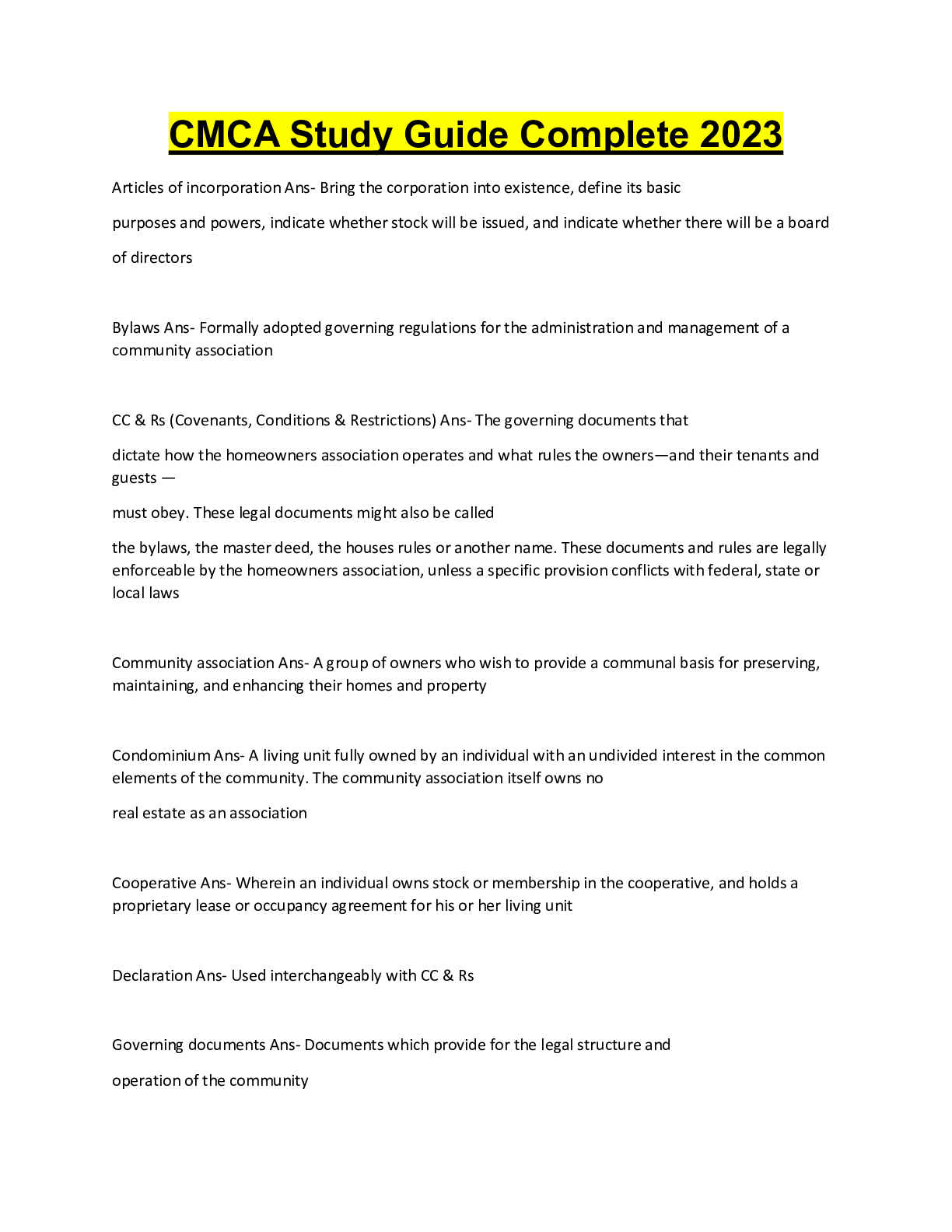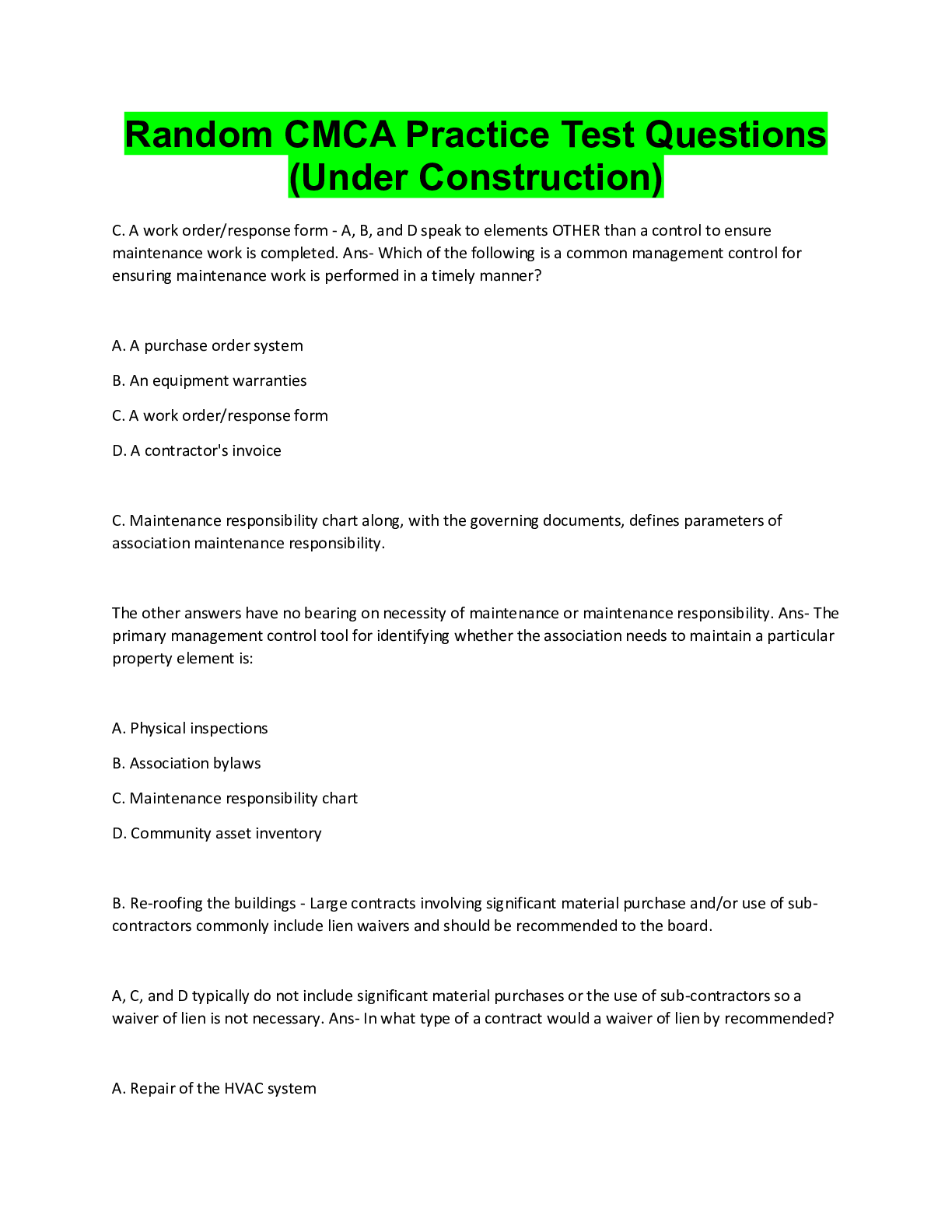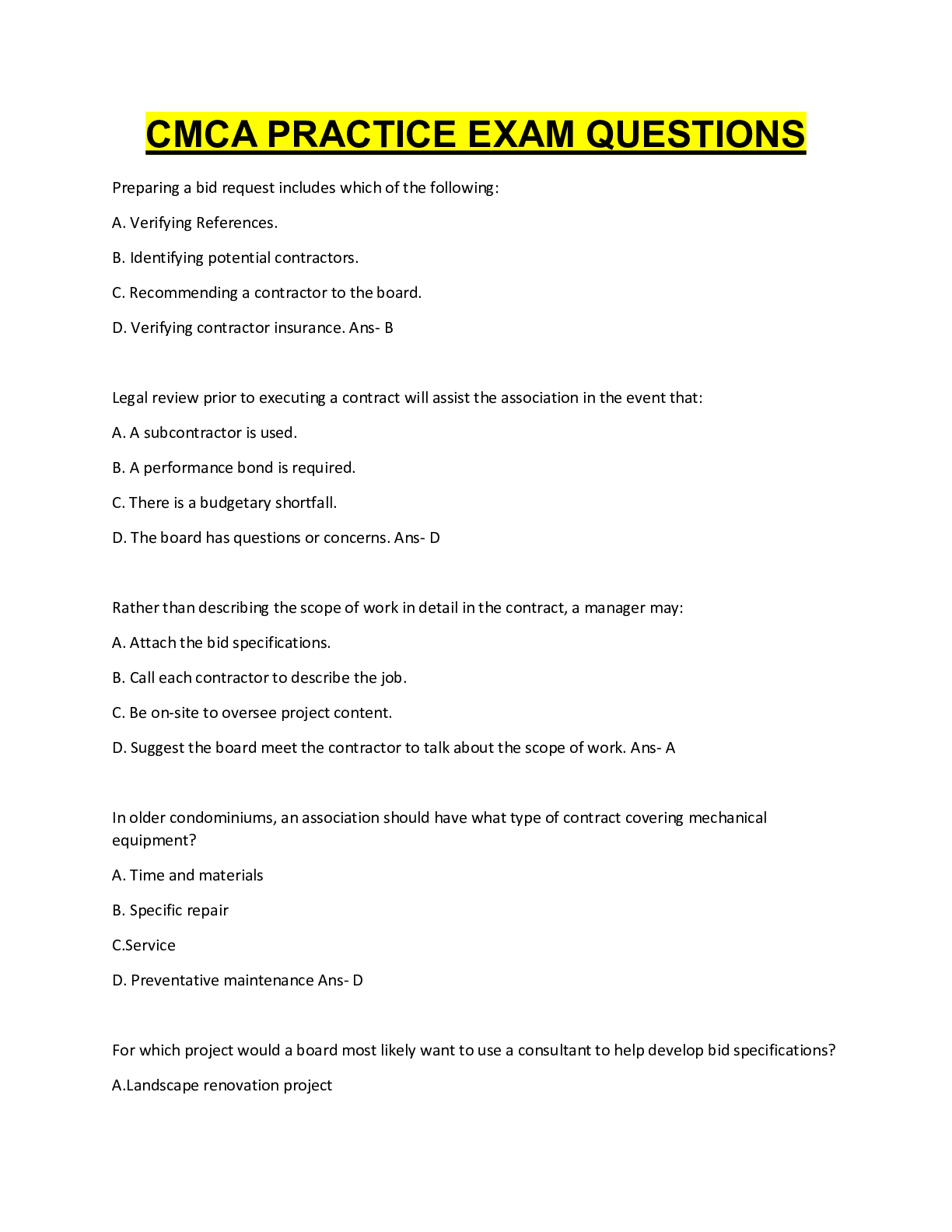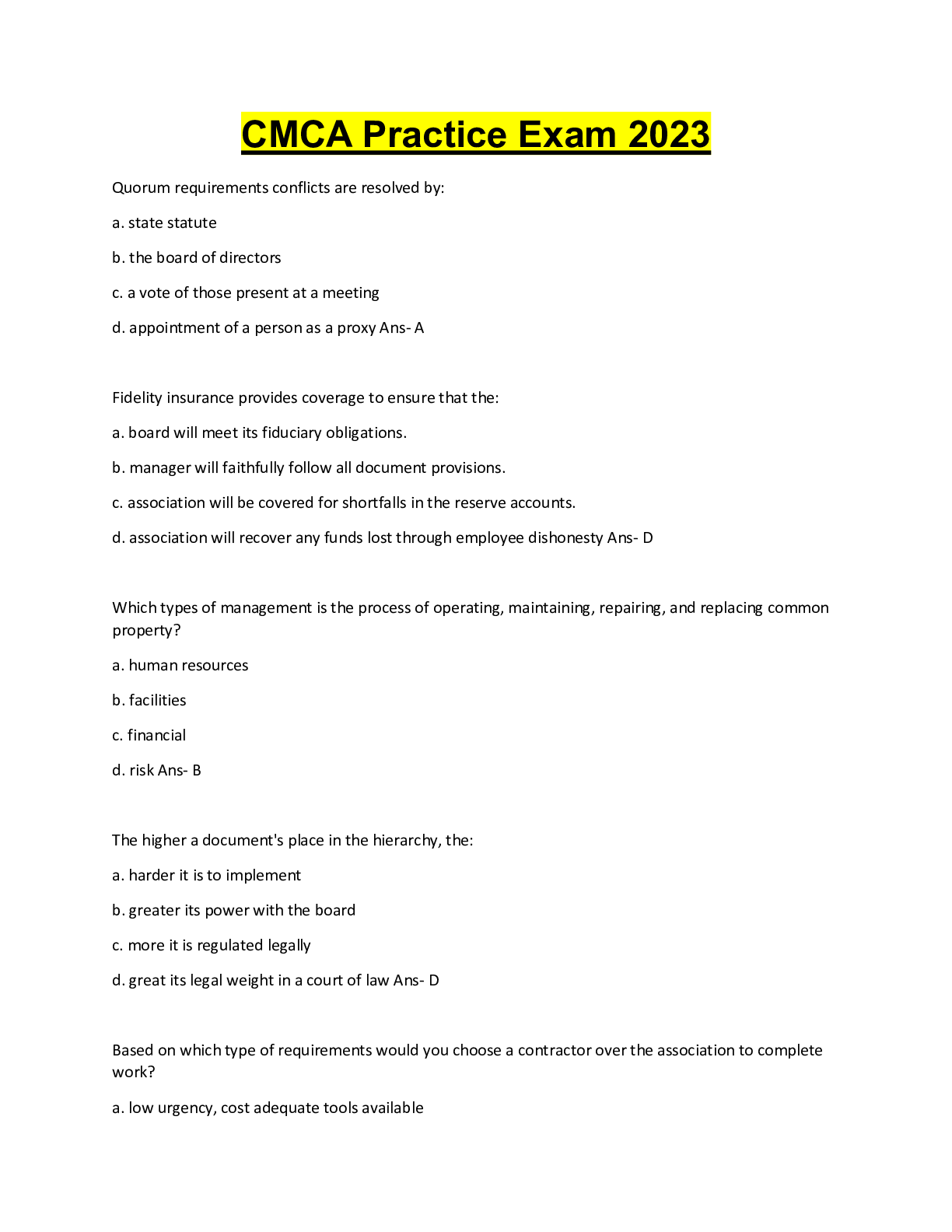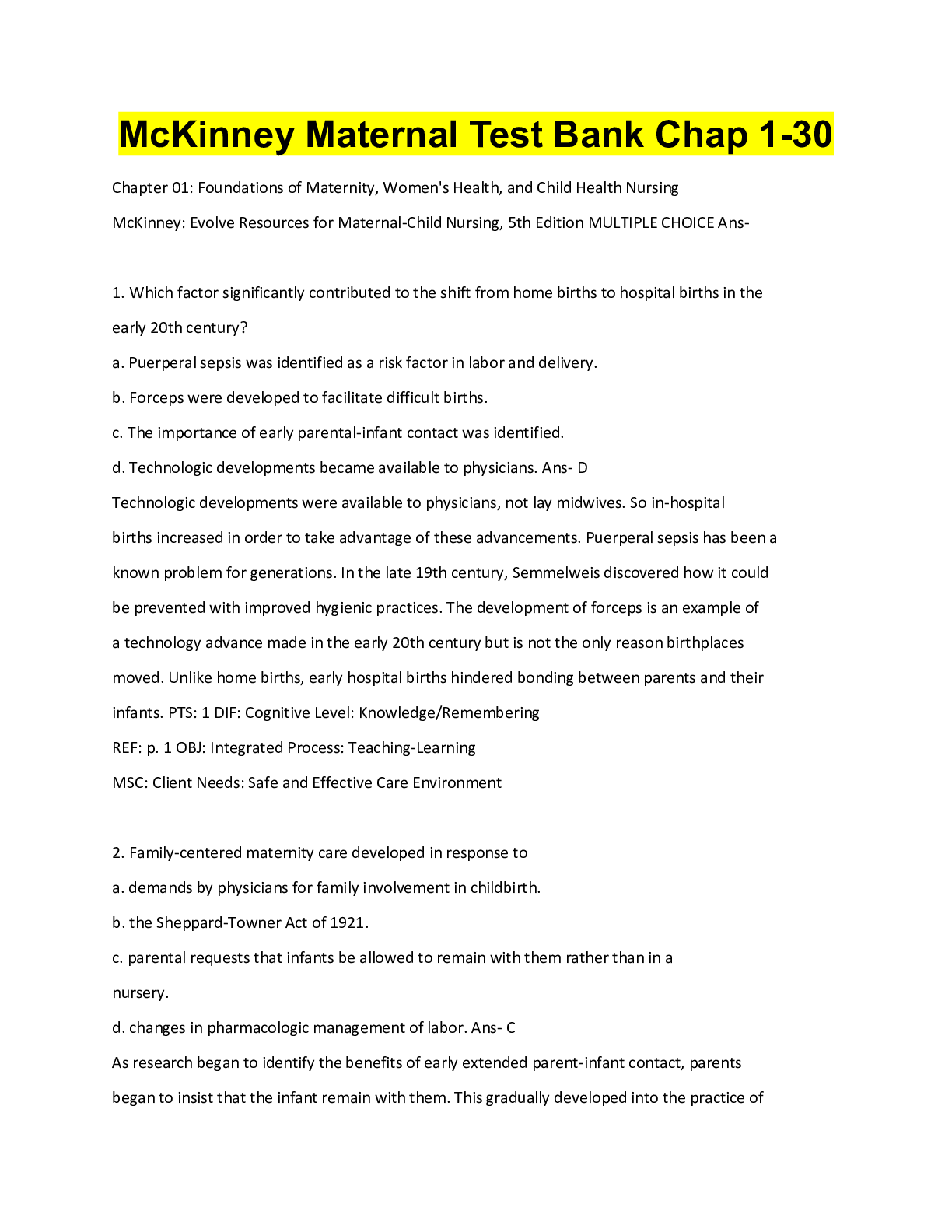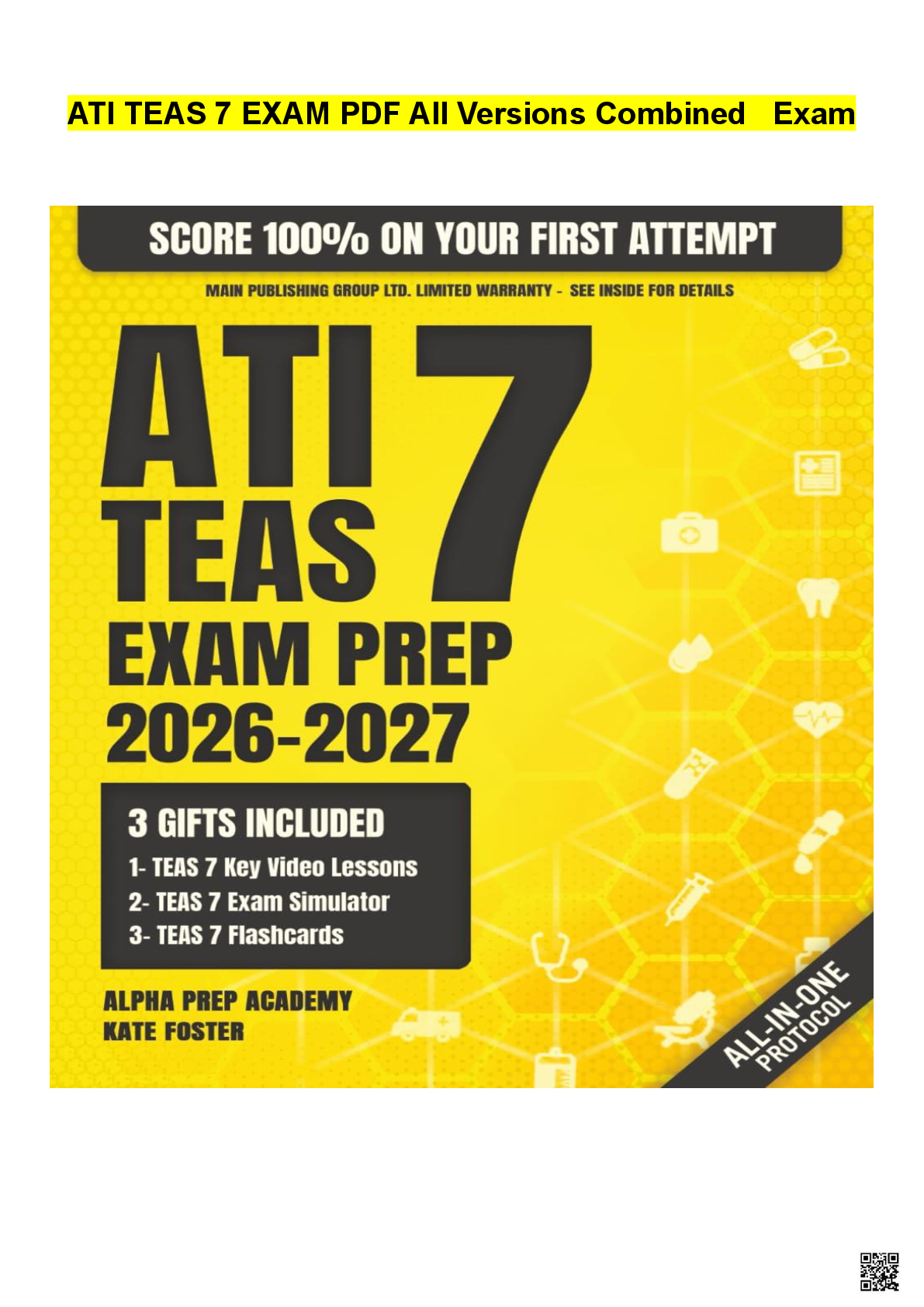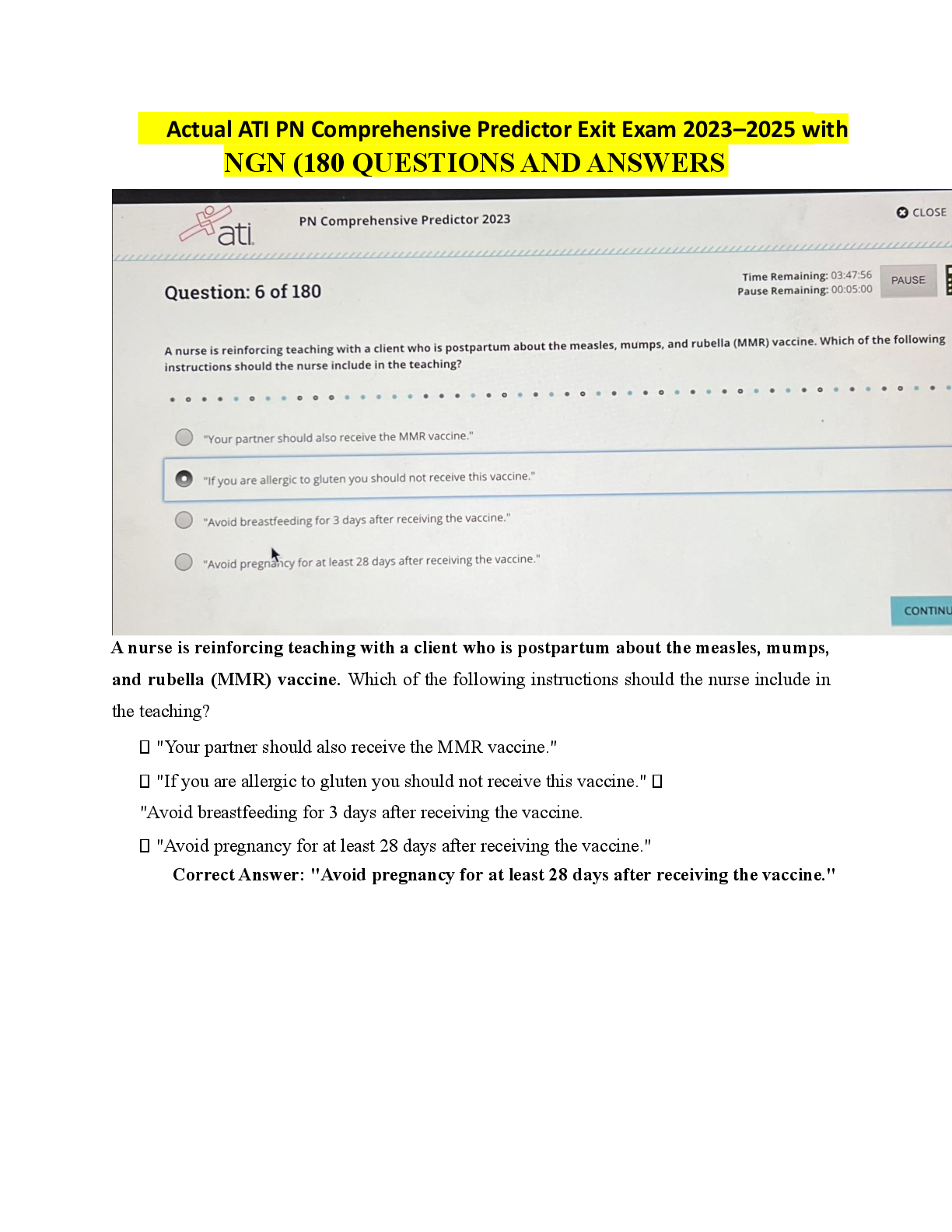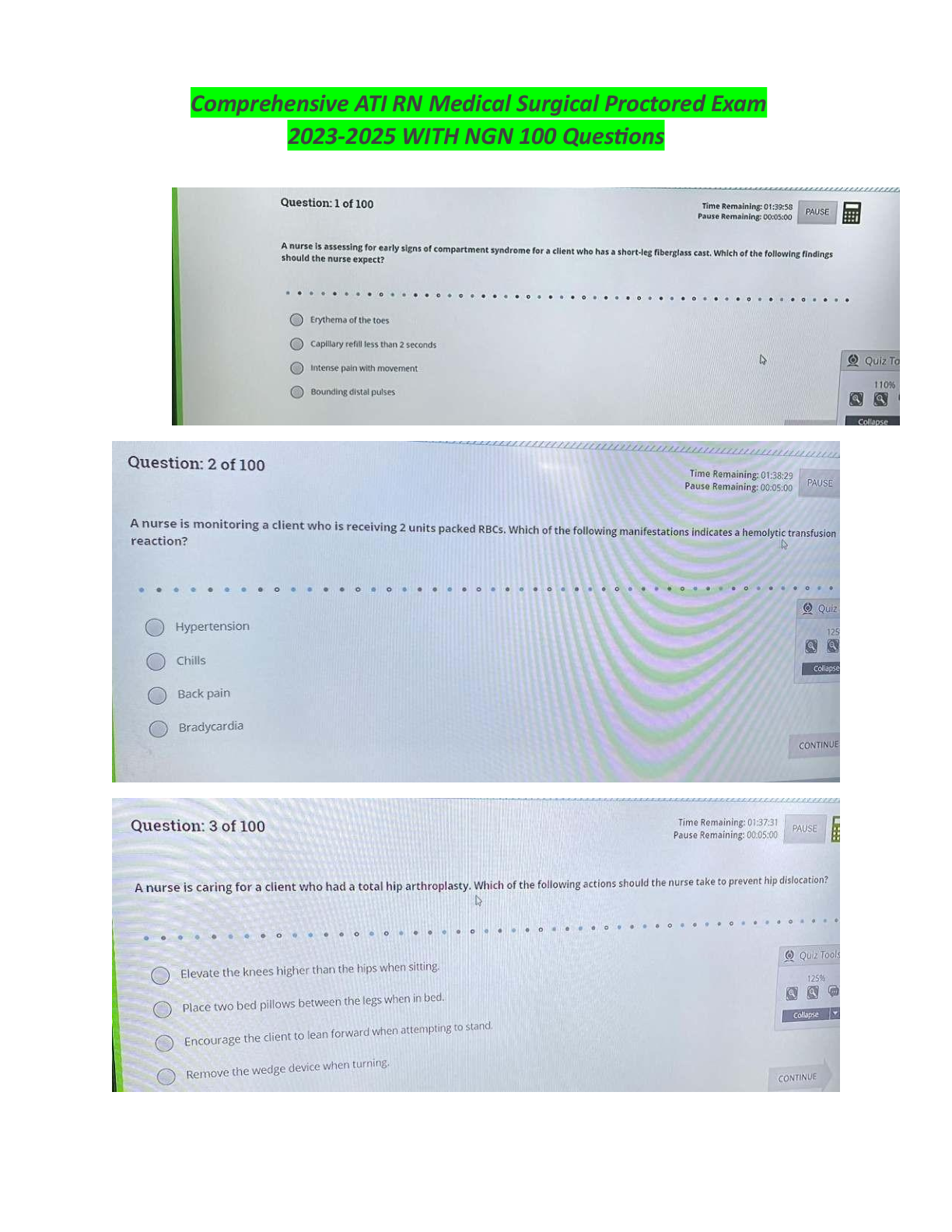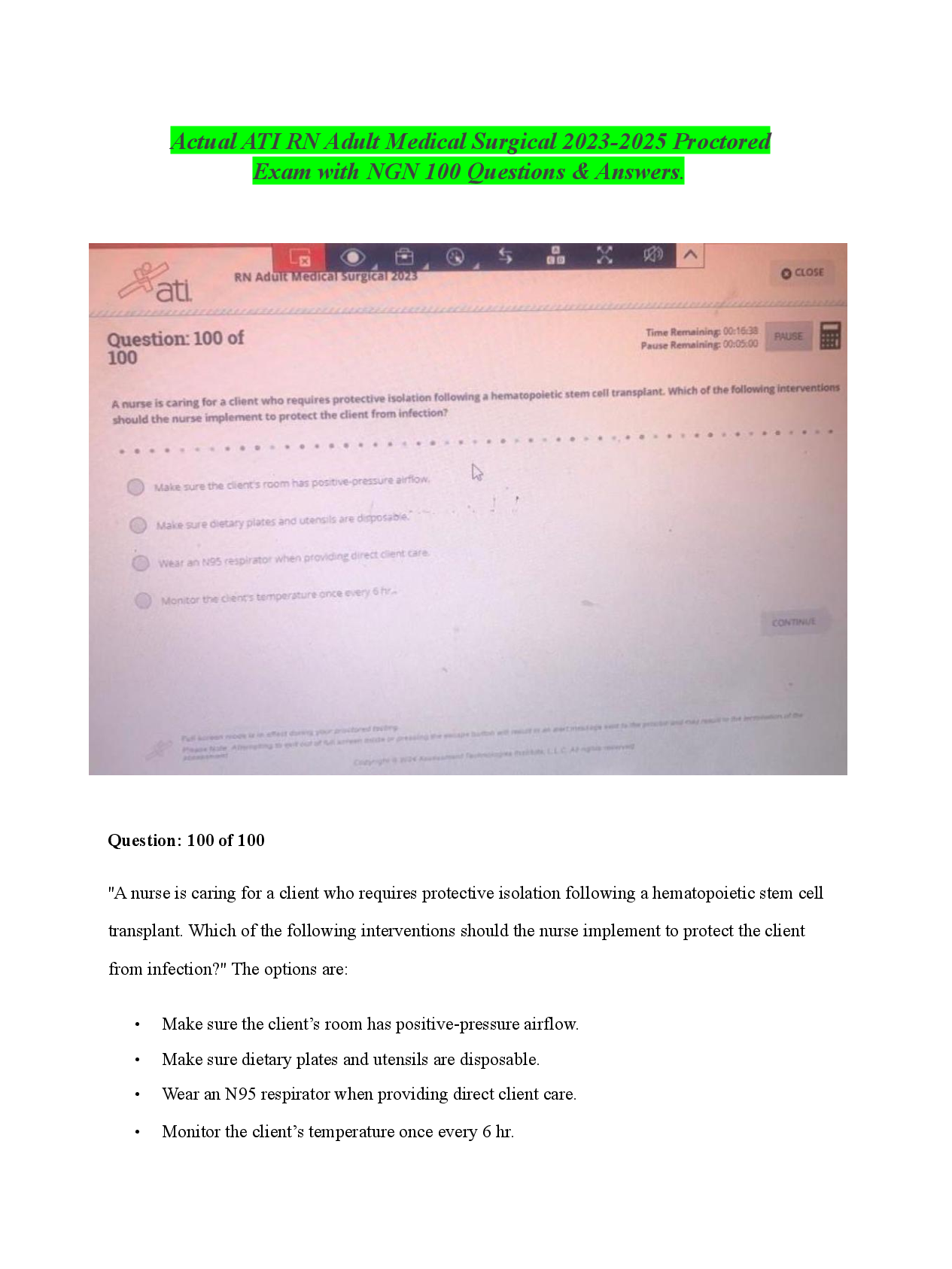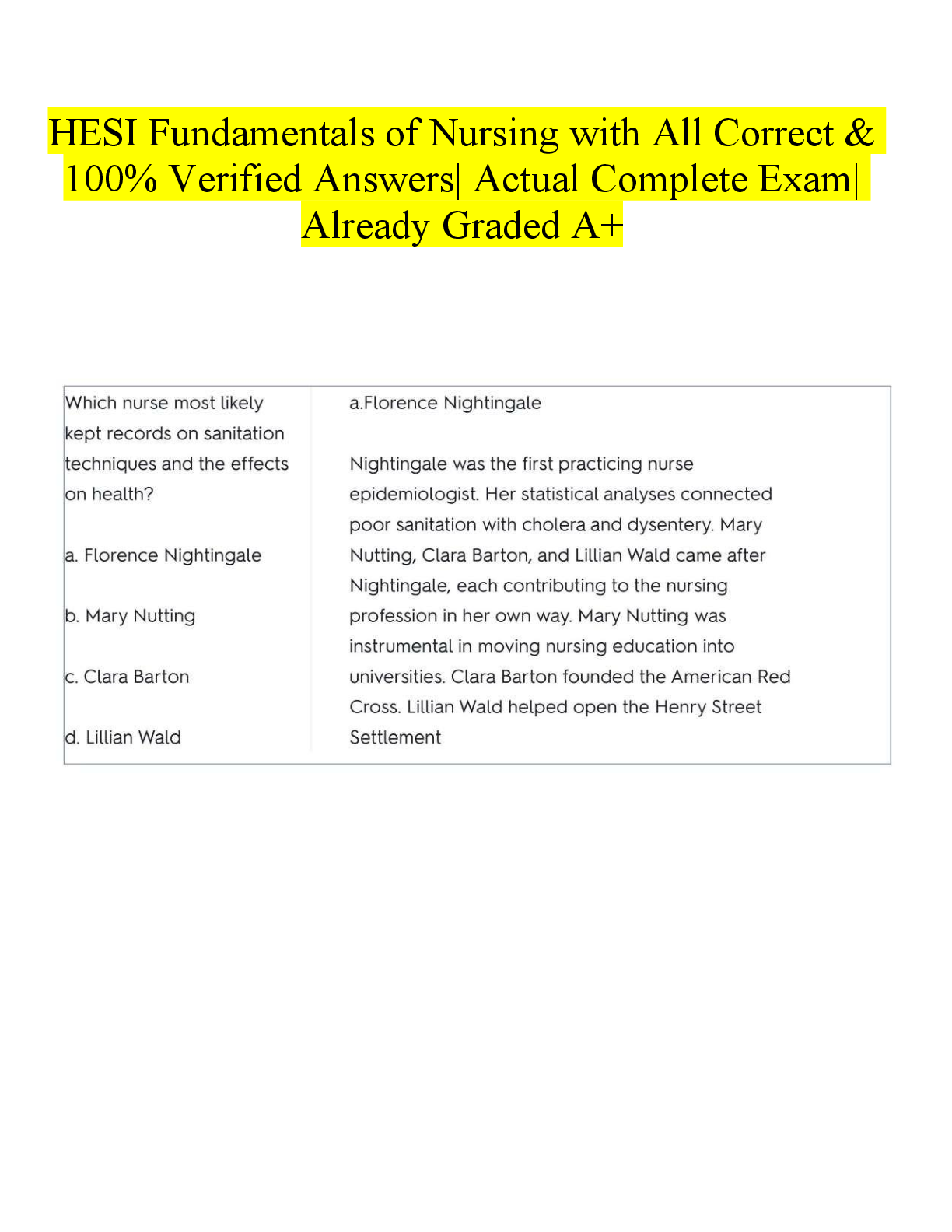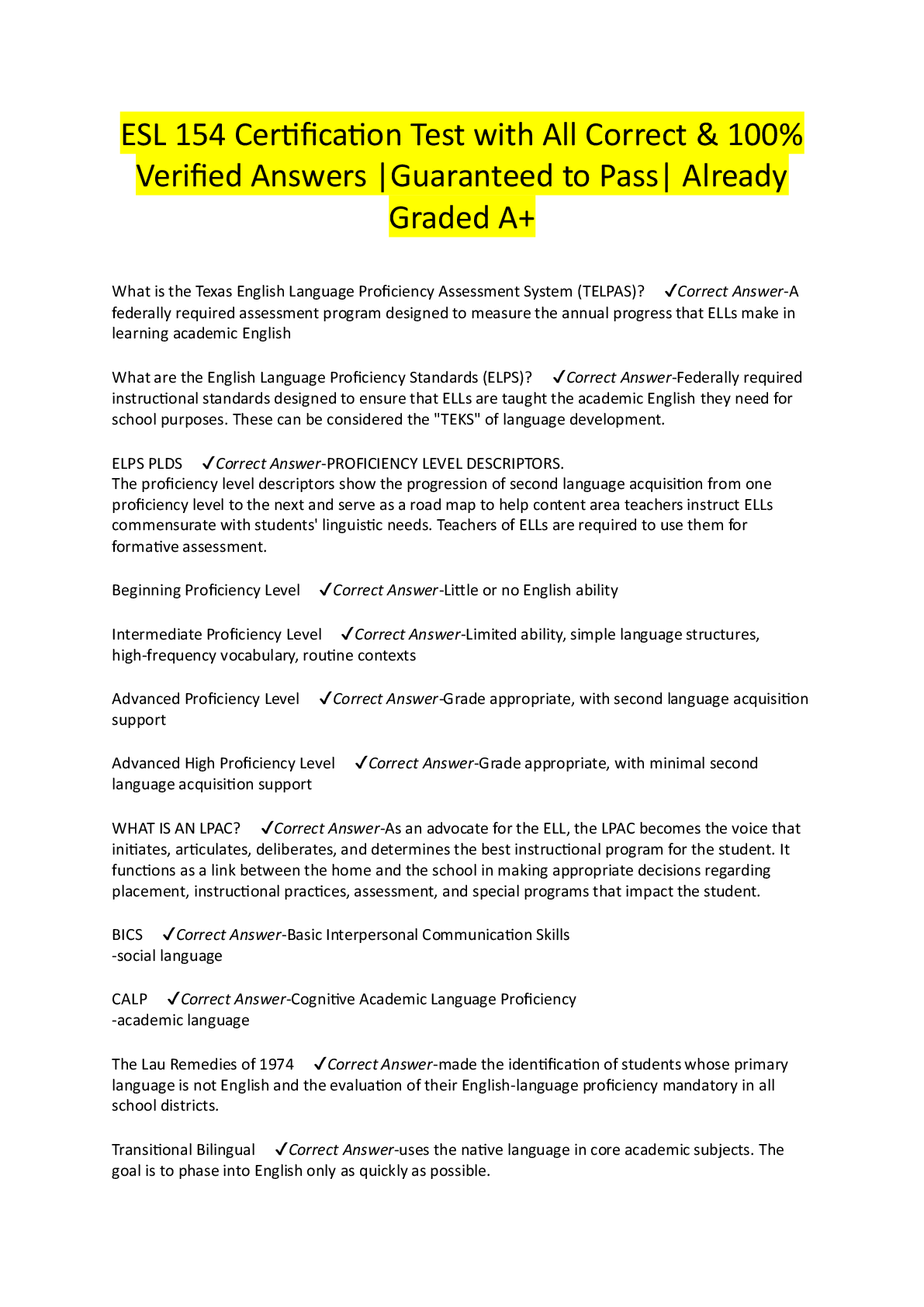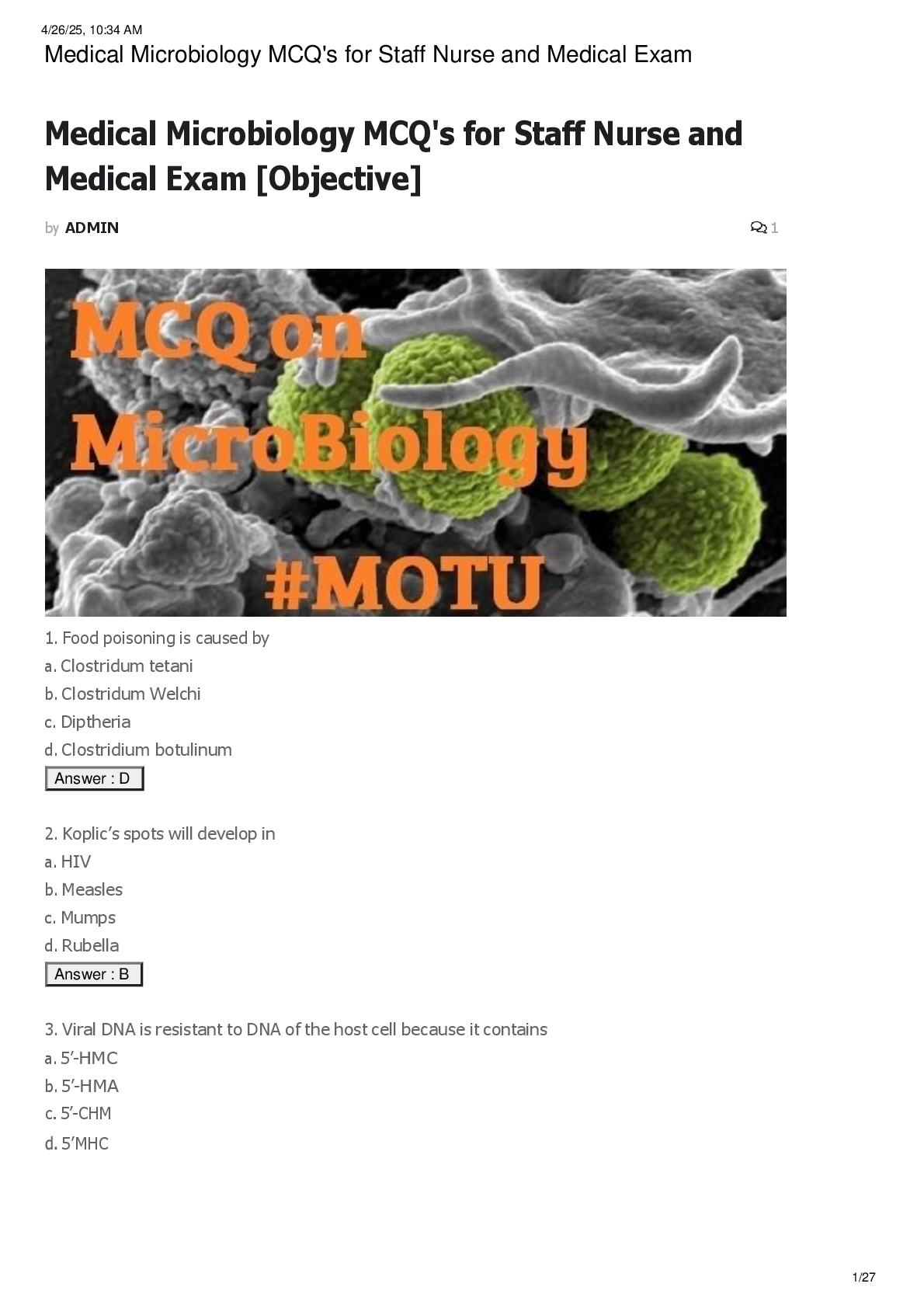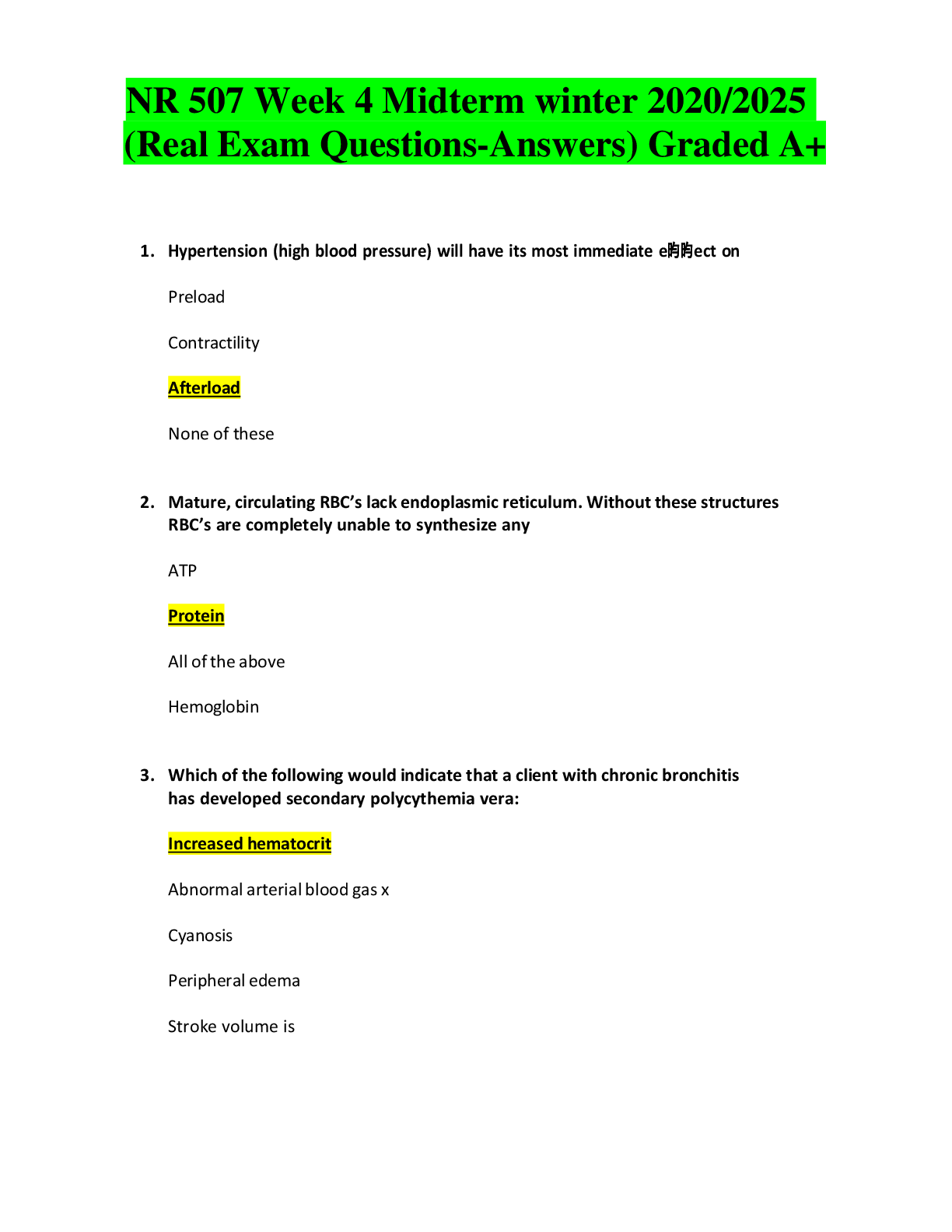Communication > EXAM > COM 207 Theory Exam Questions And Answers 2022 (All)
COM 207 Theory Exam Questions And Answers 2022
Document Content and Description Below
1. It is possible to have a relationship that has depth but not breadth. (T/F) true 2. The more complex a theory, the better it is, since it more closely conforms to the real world. (T/F) false 3. ... One of the main differences between objective and interpretive scholars is that interpretive scholars believe they can discover the one reality that exists. (T/F) false 4. In symbolic interactionism, the concept of the looking glass is that we gain a mental self-image by imagining how we look to another person (T/F) true 5. What term is used to explain how we may limit our thinking by unintentionally "filling in the blanks," such as assigning a gender to a neutral noun? (MC) default assumptions 6. Communication privacy management is a rules-based theory. What does this mean? (MC) By certain societal rules we chose to or not to private disclosure some things. 7. Baxter and Montgomery's theory is a good example of a social scientific theory.(T/F) false 8. Geertz believes that an effective manager can manufacture a culture to suit management's needs. (T/F) false, sometimes the culture should not change even though it can This study source was downloaded by 100000860583932 from CourseHero.com on 01-29-2023 06:45:53 GMT -06:00 https://www.coursehero.com/file/31338422/C207-Theory-Exam-docx/ COM 207 EXAM QUESTIONS STUDY GUIDE 9. For the ___________ theorist, theory is less about proving something and more about meaning. (MC) interpretive 10.According to Kramarae, "muted" means: (MC) devalued or silenced 11.Communication privacy management theory asserts that no one truly owns their private information. (T/F) false 12.Rhetorical critics maintain that objectivity (MC) is a myth 13.A social scientist is often appropriately labeled a(n) __________. (MC) empiricist 14.Pacanowsky argues that culture is not something an organization has, (MC) something an organization is 15.According to Baxter and Montgomery, openness-closedness is an example of an external dialectic. (T/F) false (internal) 16.Erving Goffman's metaphor of dramaturgical performance means that (M/C) all of the above 17.Kramarae's theory advocates the use of man-made language. (T/F) false 18.The human tendency to size up other people in terms of what they have to offer is called (M/C) Communicator reward valence 19.The word a speaker uses to sum up all that is bad, wrong, or evil is a(n) (MC) devil term This study source was downloaded by 100000860583932 from CourseHero.com on 01-29-2023 06:45:53 GMT -06:00 https://www.coursehero.com/file/31338422/C207-Theory-Exam-docx/ COM 207 EXAM QUESTIONS STUDY GUIDE 20.Whenever Simon comes home, his roommate Paul is always there to greet him and ask him how his day was. What is this, according to social penetration theory? (M/C) It depends- it may be either a reward or a cost based on Simon's assessment 21.The twin objectives of scientific research are (MC) Explaining the past and present and predicting the future 22.Persuasion for Burke was a communicator's attempt to get the audience to accept his or her view of reality as (T/F) true 23.What does co-ownership of information mean? (MC) Because it is irrevocable, one should carefully consider the desire to share information.? 1. discloser must realize that the personal privacy boundary encompassing the information has morphed into a collective boundary that seldom shrink [Show More]
Last updated: 2 years ago
Preview 1 out of 6 pages
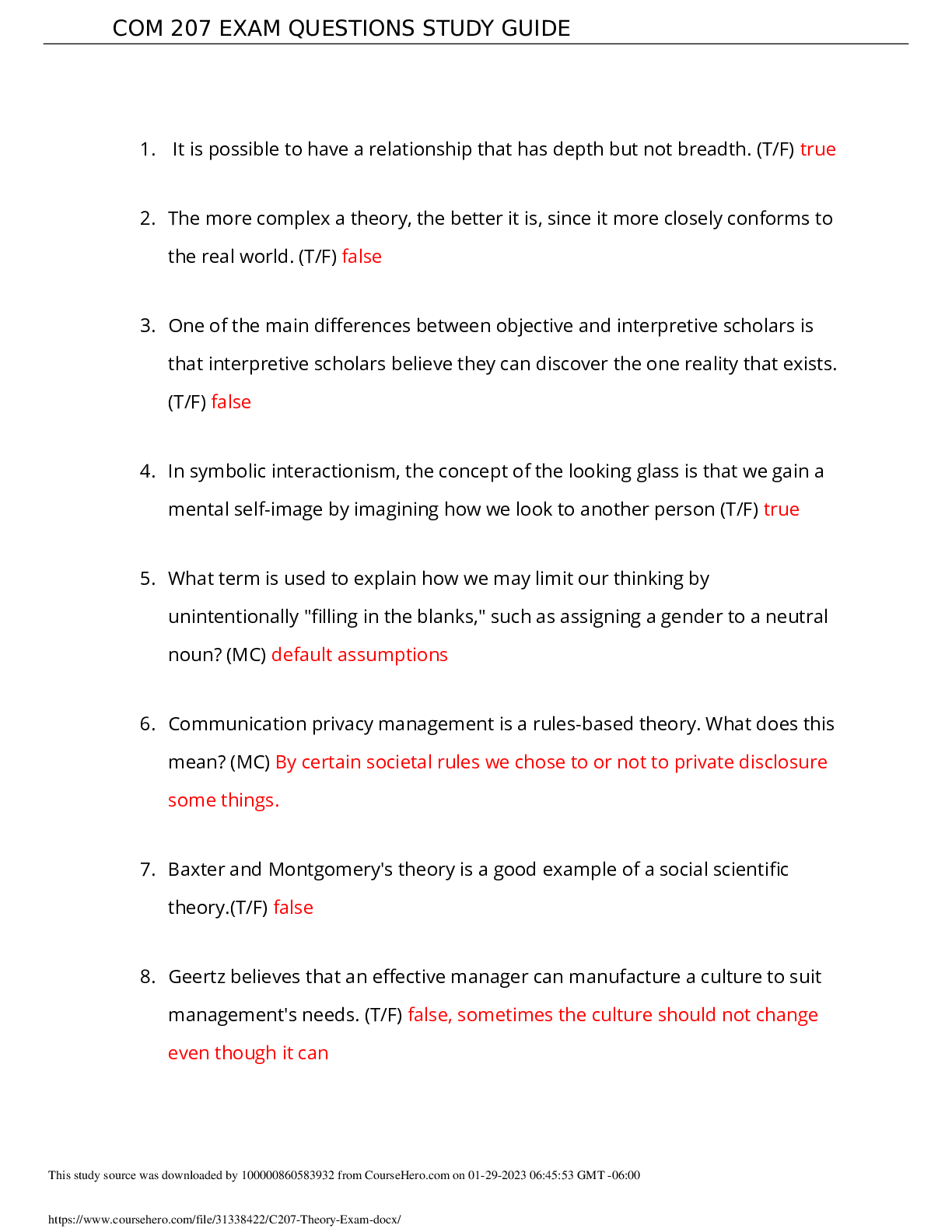
Buy this document to get the full access instantly
Instant Download Access after purchase
Buy NowInstant download
We Accept:

Reviews( 0 )
$9.00
Can't find what you want? Try our AI powered Search
Document information
Connected school, study & course
About the document
Uploaded On
Jan 29, 2023
Number of pages
6
Written in
All
Additional information
This document has been written for:
Uploaded
Jan 29, 2023
Downloads
0
Views
137

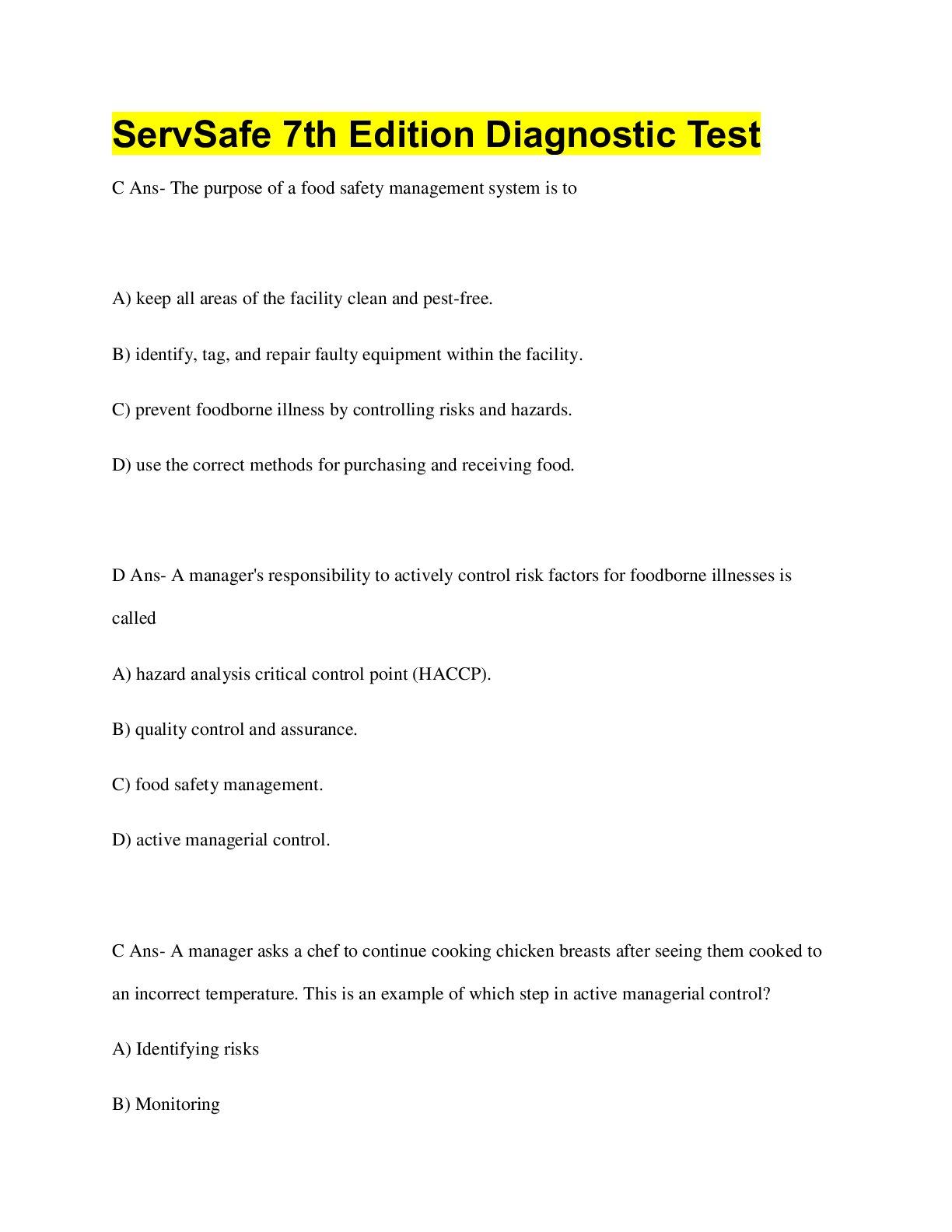


.png)
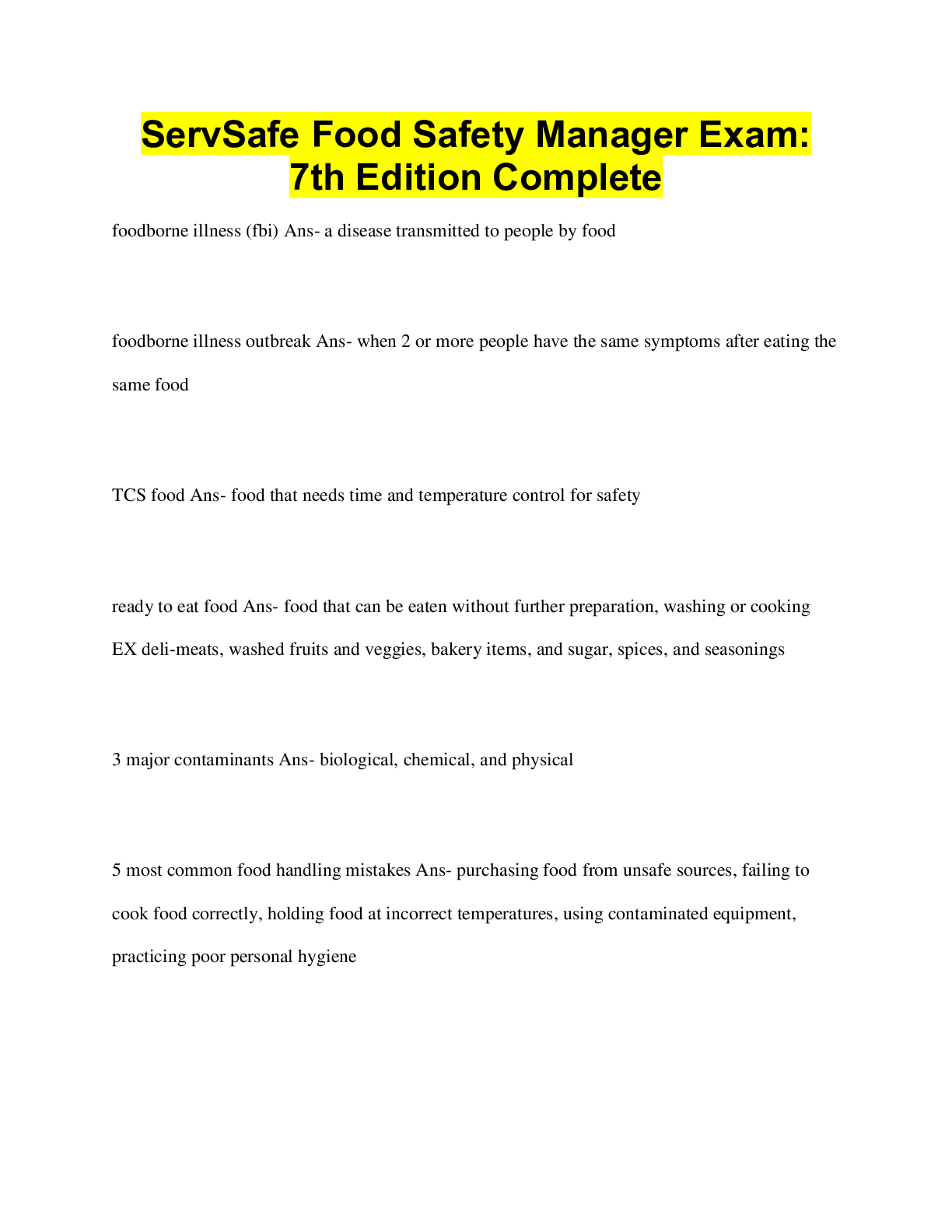
.png)
